On June 26, students in the nPower Girls program participated in Camp Confluence led by Native artists and educators of the Pacific Northwest. Students participated in an interactive plant walk and discussion to learn about the relationships between native plants and people. Through engaging with Native educators, students gained valuable experience in understanding ecology and science through Indigenous Traditional Ecological and Cultural Knowledge (ITECK) frameworks.
Camp Confluence is an educational program managed by Confluence that connects local children with Pacific Northwest ecology, cultures and art through Native voices. Confluence in the Classroom and Outdoors programs began in 2007, when Warm Springs artist Lillian Pitt began working on art projects with students as a way of introducing them to Columbia River Indigenous cultures. The program has since expanded to include field trips, plant walks, and artists of all kinds from many Pacific Northwest tribes.
nPower Girls is an Educational Service District 112 program, in partnership with Career Connect Southwest, school districts in Southwest Washington, and many community organizations. The program develops career exploration opportunities for girls in 4 through 6th grades.
Emma Johnson, Cowlitz tribal member with a Masters of Science in Cultural Anthropology from Portland State University, led nPower Girls students on an educational plant walk along the Vancouver Land Bridge. She was joined by Clifton Bruno, Native educator and Wasco tribal member, and Christine Bruno, of Comanche, Basque, and Irish heritage. On the plant walk, students observed nutritious native foods growing along the pedestrian bridge.
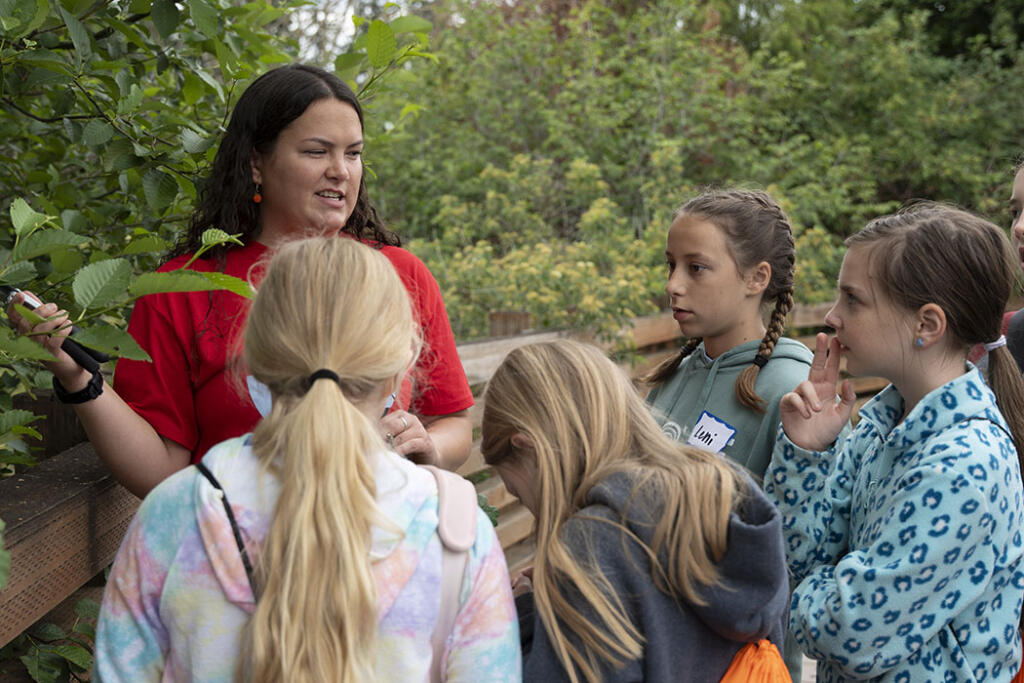
Emma shares Indigenous uses for alder trees
“Native educators and artists work through Indigenous knowledge systems to plant seeds of knowledge for both students and educators at Camp Confluence,” said Heather Shá xat k’ei Gurko, Education Program Manager at Confluence and enrolled tribal citizen of the Central Tlingit and Haida Indian Tribes of Alaska.
The visit concluded with a discussion and review of learning in the Historic Hangar at Pearson Air Museum led by Louise Wilmes, Native Hawaiian and member of The Otoe-Missouria Indian Tribe of Oklahoma, and Kitana Connelly, Grand Ronde tribal member and 2023 Emerging Indigenous Artist and Educator at Confluence. The team led a discussion with students about historical and contemporary Indigenous cultures along the Columbia River, confluence, reciprocity, and the roles of humans in nature.
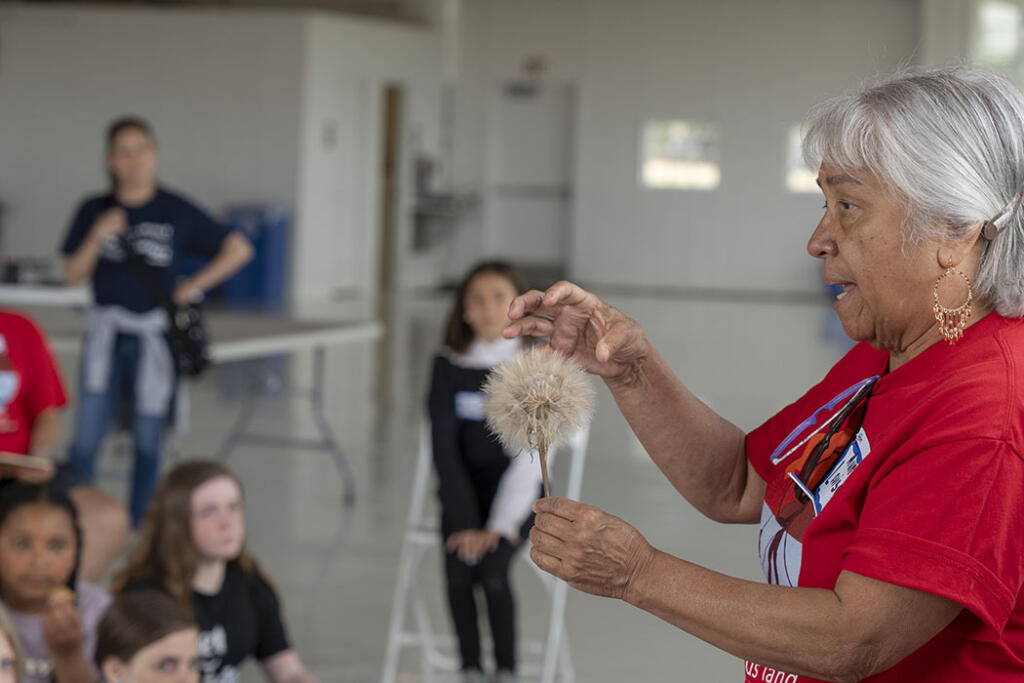
Louise Wilmes describes the meaning of reciprocity.
“I always try to make it more like a conversational community space. I encourage students to share what they know about plants first, before I share my knowledge of plant relatives,” said Johnson. “I do a lot of teachings about connection to the places where we live and who has stewarded them. These lessons open up conversations for curious students.”
The experiential, place-based learning experience inspired students in the nPower Girls program to view their environment in new ways while exploring career opportunities in science, the arts, environmental studies, and anthropology.

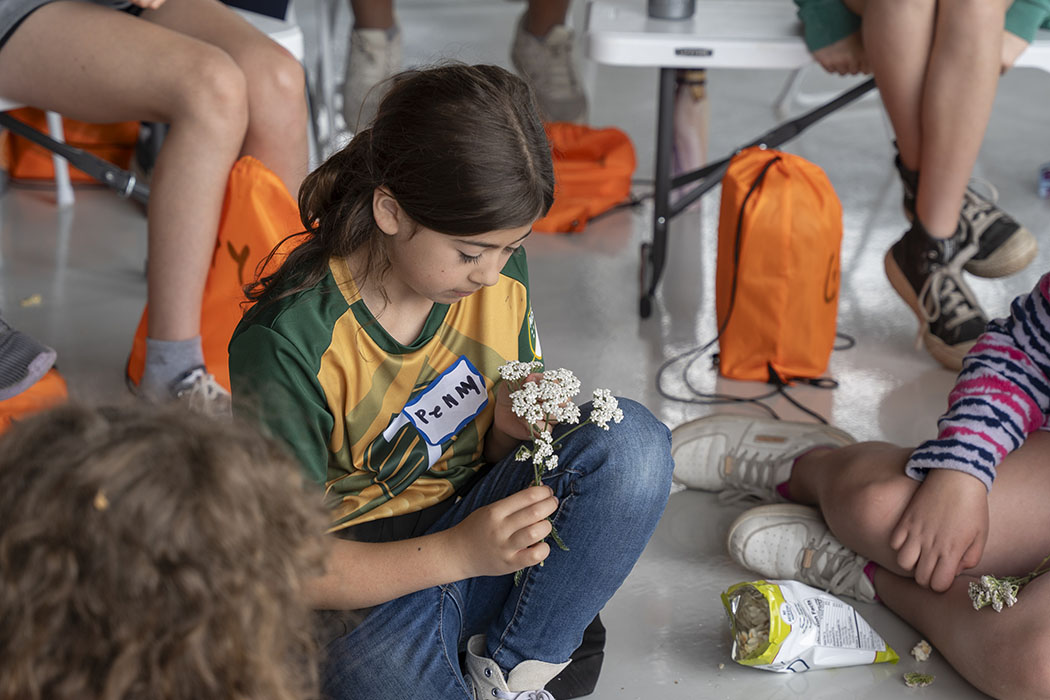
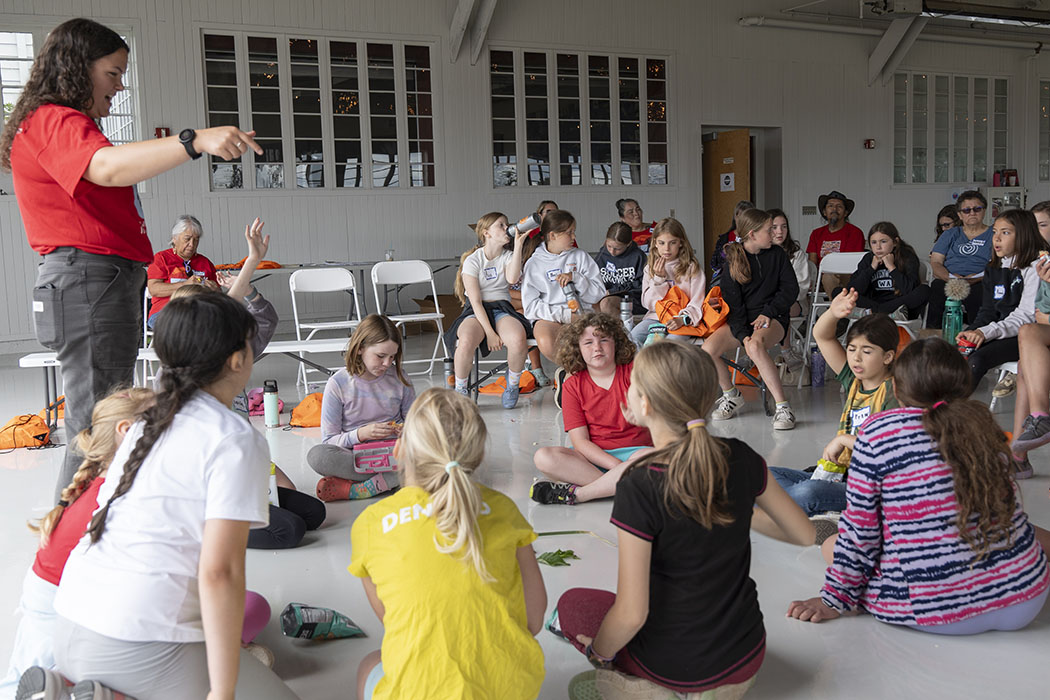

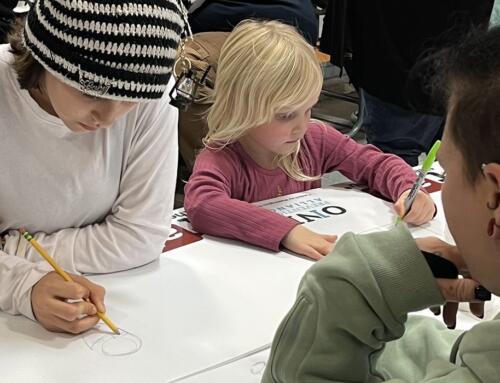
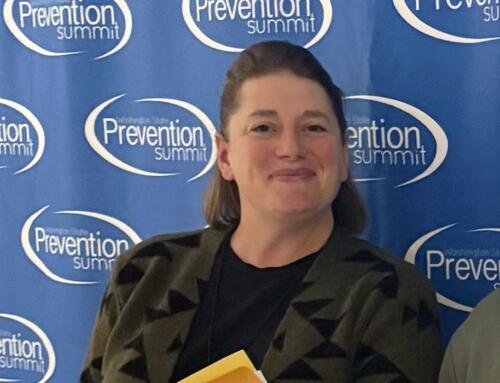
 ESD 112 equalizes educational opportunities for learning communities through innovative partnerships, responsive leadership, and exceptional programs.
ESD 112 equalizes educational opportunities for learning communities through innovative partnerships, responsive leadership, and exceptional programs.